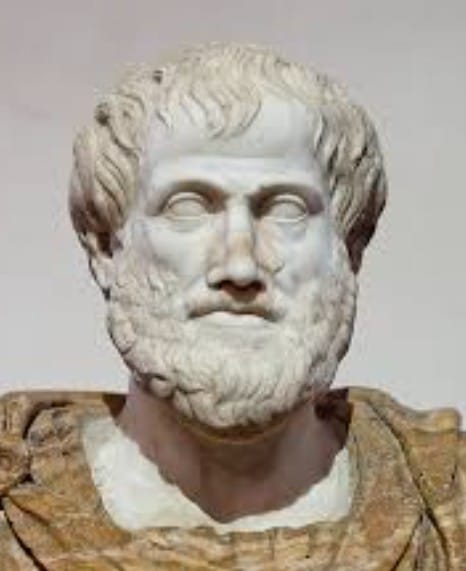Aristotle’s plays were primarily built on tragedy. He introduced the world to poetry through its structural elements and its narrative as subtext. He not only analyzed poetry but also explored it morally, suggesting that emotional fulfillment (catharsis) comes through drawing conclusions from the analysis of poetry. His work Poetics mainly discusses tragedy and epic poetry.
It is known that Aristotle also wrote a book related to comedy. He defined poetry as an imitation through language, rhythm, and harmony, either separately or in combination. Poetry is an imitation, representing objects and events in the world. Unlike philosophy, which provides ideas, poetry offers representations. “Humans are naturally drawn to imitation, and thus our minds are strongly attracted to poetry.”
Aristotle recognized tragedy as the most refined form of poetry, dealing with serious matters. He acknowledged comedy as a refined form of poetry that deals with more basic, everyday matters. He also traced the origins of tragedy to dithyrambic hymns sung in praise of Dionysus, recognizing the condensed and imaginative histories within tragedy.
He credited Aeschylus with introducing the second actor and bringing dialogue into dramatic storytelling, thereby expanding tragedy. With the introduction of a third actor, Sophocles made even further innovations. In this way, one could say Aristotle “discovered” tragedy. He discussed the significance of characters and mentioned epic poetry. Until the end, Aristotle believed that tragedy was the highest form of art in dramatic presentation.
“Tragedy and epic poetry share many common characteristics, particularly the unity of plots and similar elements. However, epic poetry tends to be longer and deals with a wider scope of actions and more marvelous events, while tragedy is more focused.”
Epic poetry and tragedy were written in different meters. After defending poetry against criticisms that it deals with the improbable and the impossible, Aristotle assessed tragedy in comparison to epic poetry, concluding that tragedy, in its entirety, is superior and praising it in the process. By Prakash Surya


